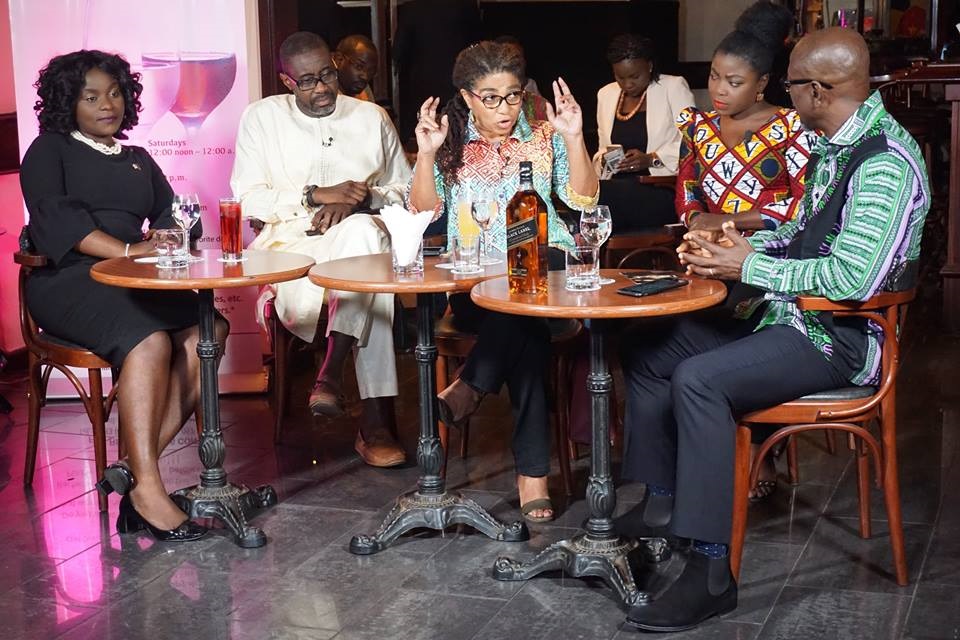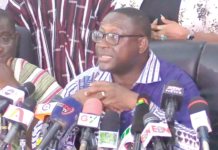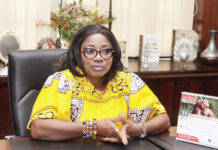
Dr. Louise Carol Donkor, a gender, media and politics researcher has indicated that the only way a ‘Me Too’ revolution can happen in Ghana is when a prominent person speaks up about his or her experience with sexual harassment.
She pointed out that in the heat of the ‘Me Too’ revolution in the United States which saw powerful men losing their prestige and jobs, some Ghanaians took to social media to share experiences of how they have been sexually harassed but according to her, the media in Ghana did not find such stories newsworthy because those persons were not prominent members of the society.
“During the ‘Me Too’ Movement, some Ghanaians shared their experience on social media but we live in a culture where who speaks, matters…Mind you, in 2006, the African American woman who started this ‘Me Too’, her story did not catch on until some prominent person spoke up and it became newsworthy,” she told Kwaku Sakyi-Addo, host of ‘The Lounge’ last Friday.
Dr. Donkor, who is also a feminist, further indicated that people are afraid to speak up about being sexually harassed because it invites criticisms and scrutiny into one’s private life.
“The kind of people who could make this more visible – the ‘Me Too’ Experience in Ghana, are people who would have perhaps suffered that experience in the hands of powerful men and if you have to come and talk about powerful men in Ghana, you better be ready to dance to the tune. We are a people who victimize a lot, we are a people who talk about people a lot in ways that you wouldn’t appreciate,” she explained.
In support of this assertion, Professor Akosua Adomako Ampofo, a lecturer at the University of Ghana likened the aftermath of speaking up to that of Anita Hill, a black American woman who accused a Supreme Court nominee, Clarence Thomas of sexual harassment.
“You will go through what Anita Hill went through. She was torn to pieces,” she said.
Prof Adomako Ampofo called for a system and a culture where men would not have unfettered access to the woman to reduce incidence of sexual harassments.
Our Laws Must Change
On his part, private legal practitioner, Ace Ankomah called for a protection of the identity of persons who report sexual harassment or rape cases.
He explained that a lot of Ghana’s laws date as far back as the 1960s and it captured the state of the law in England at the time so “our laws on rape is 1960 English understanding of what it is and we haven’t done anything about it since then.”
Citing an example to buttress his point, Mr. Ankomah stated that “a woman who is sexually harassed, who decides to sue would have to disclose her name. In the US, there is a law that protects the identity of a woman who is going through a trial eg: a rape trial or any trial with sexual connotations but we still don’t have that. In Ghana, there is no such law…that is one thing that we need to look at – a law protecting the identity of victims of these assaults.”
Broadcast journalist, Afia Pokua said the country needs women in positions of authority to help refocus media reportage on issues of sexual harassment and rape.
She bemoaned the situation where ownership and management of most media houses in Ghana tilts towards men; a situation which she said sometimes affects how such stories are reported.
Dr. Ama Opoku-Agyemang, a lecture at University of Ghana called for openness and transparency in the handling of sexual harassment cases by institutions.
This, she said, will serve as encouragement to other people to come out and report their experiences because they know something will be done about it.
“We are told to be careful how we relate to students because the school has a sexual harassment policy and that lecturers get dismissed but when it happens, nobody hears anything about such reported cases so you are unable to know if the policy works or not,” she said.
The Lounge with Kwaku Sakyi-Addo airs live on Starr FM every Friday from 7pm to 8pm and on GHOne TV on Sundays from 8pm to 9pm.
Source: Ghana/Starrfmonline.com/103.5FM




